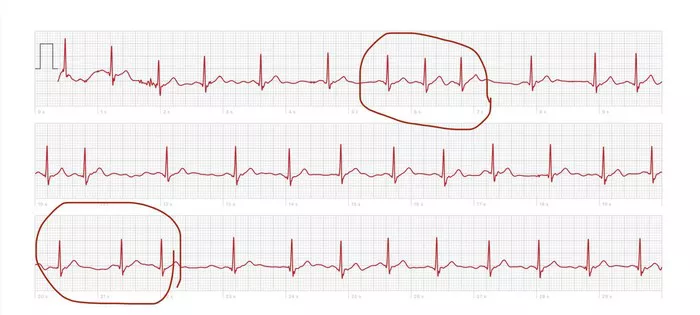Premature ventricular contractions (PVCs) are a common type of irregular heartbeat that can cause significant discomfort and concern for those experiencing them. While PVCs themselves may not directly cause fatigue in all cases, they can be associated with underlying conditions or factors that contribute to feelings of tiredness and exhaustion. Understanding the relationship between PVCs and fatigue requires a deeper look into the mechanisms of these heart rhythm disturbances and their potential impact on overall cardiovascular health.
Understanding Premature Ventricular Contractions (PVCs)
To comprehend why PVCs might lead to fatigue, it’s essential to first grasp what PVCs are and how they affect the heart’s normal rhythm. PVCs occur when the heart’s ventricles contract earlier than expected during the cardiac cycle. Instead of the normal sequence of atrial contraction followed by ventricular contraction, a PVC interrupts this rhythm by causing an early ventricular contraction.
These premature contractions can result in a sensation of a skipped heartbeat or a fluttering feeling in the chest. While occasional PVCs are common and often benign, frequent or complex PVCs may indicate an underlying heart condition that requires medical attention.
The Link Between PVCs and Fatigue
While PVCs themselves may not directly cause fatigue, they can be associated with conditions or factors that contribute to feelings of tiredness and exhaustion. Here are several ways in which PVCs might lead to fatigue:
1. Stress and Anxiety: The experience of PVCs can be stressful and anxiety-provoking for many individuals. Persistent worry about one’s heart health and the fear of sudden cardiac events can lead to increased stress levels. Chronic stress and anxiety are well-known contributors to fatigue and can affect sleep quality, energy levels, and overall well-being.
2. Disrupted Sleep: PVCs, especially when they occur frequently or during nighttime hours, can disrupt sleep patterns. Sleep disturbances, such as frequent awakenings or difficulty falling back asleep after a PVC episode, can lead to insufficient rest and daytime fatigue.
3. Underlying Heart Conditions: In some cases, frequent PVCs may be a sign of an underlying heart condition, such as cardiomyopathy or coronary artery disease. These conditions can affect the heart’s ability to pump blood effectively, leading to decreased oxygen delivery to tissues and organs, including muscles. Reduced oxygen supply to muscles can result in fatigue and weakness, especially during physical exertion.
4. Medication Side Effects: Certain medications used to manage PVCs or underlying heart conditions may have side effects that contribute to fatigue. For example, beta-blockers, commonly prescribed to reduce PVC frequency and severity, can cause tiredness and lethargy as a known side effect.
5. Electrolyte Imbalances: Imbalances in electrolytes such as potassium, magnesium, and calcium can affect the heart’s electrical conduction system, potentially triggering PVCs. These imbalances, if not corrected, can lead to cardiac arrhythmias and contribute to feelings of fatigue and weakness.
6. Poor Lifestyle Choices: Factors such as a sedentary lifestyle, unhealthy diet, smoking, excessive alcohol consumption, and inadequate hydration can all contribute to fatigue and may also play a role in the development or exacerbation of PVCs.
Managing PVCs and Fatigue
If PVCs are causing significant fatigue or if fatigue is accompanied by other concerning symptoms such as chest pain, shortness of breath, or dizziness, it’s crucial to seek medical evaluation. A healthcare provider can conduct a thorough assessment, which may include a physical examination, electrocardiogram (ECG), echocardiogram, and blood tests to determine the underlying cause of PVCs and associated fatigue.
Treatment for PVCs and fatigue will depend on the underlying factors contributing to these symptoms. This may include lifestyle modifications, such as stress reduction techniques, regular exercise, a heart-healthy diet, and adequate hydration. In some cases, medications to manage PVCs or underlying heart conditions may be prescribed, along with strategies to improve sleep quality and manage stress and anxiety.
Conclusion
While PVCs themselves may not directly cause fatigue in all cases, they can be associated with underlying conditions or factors that contribute to feelings of tiredness and exhaustion. Understanding the link between PVCs and fatigue requires a comprehensive evaluation of cardiac health, lifestyle factors, and potential medication side effects. By addressing the root causes of PVCs and implementing appropriate management strategies, individuals can improve their overall cardiovascular health and reduce the impact of fatigue on daily life.

